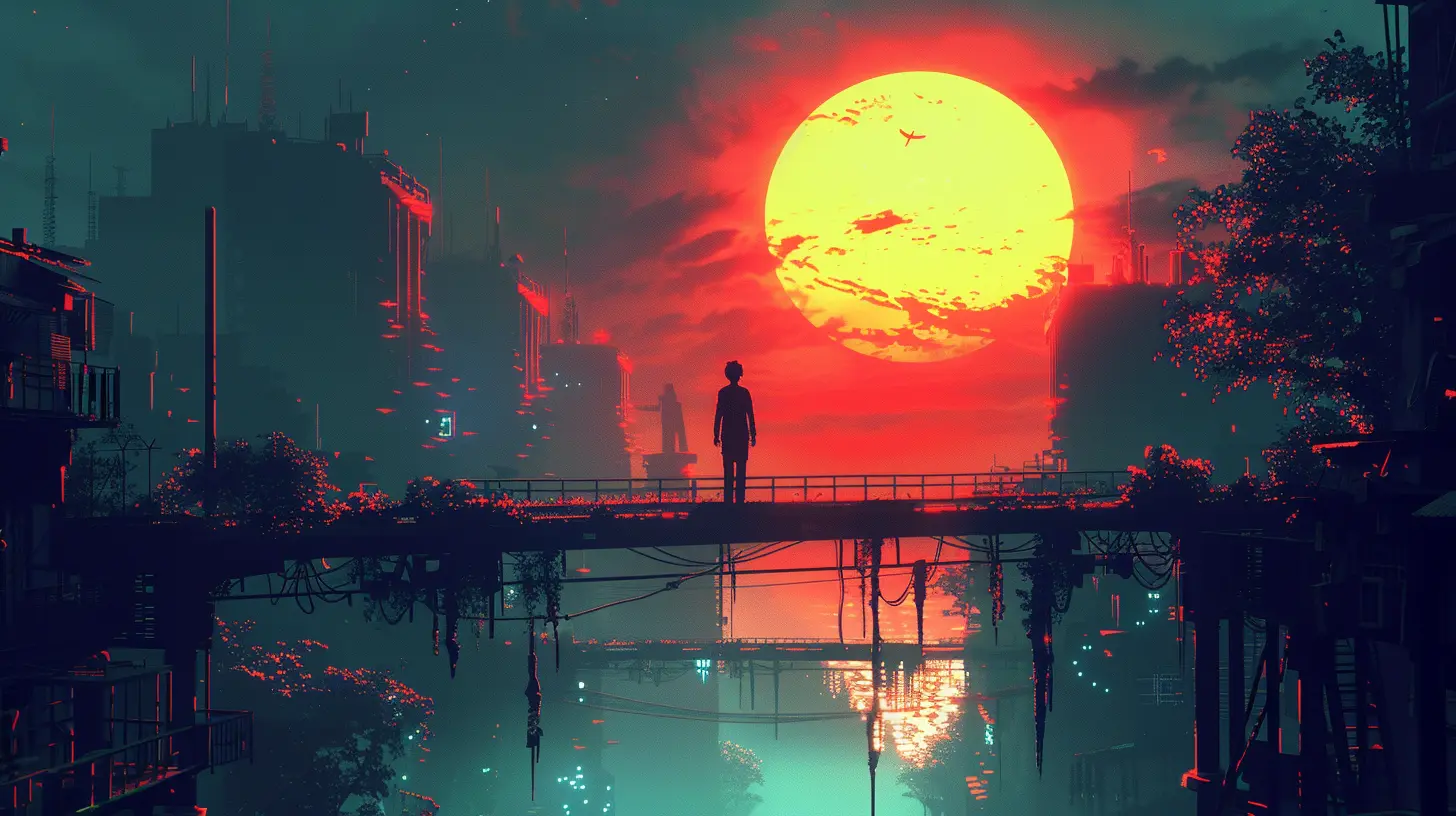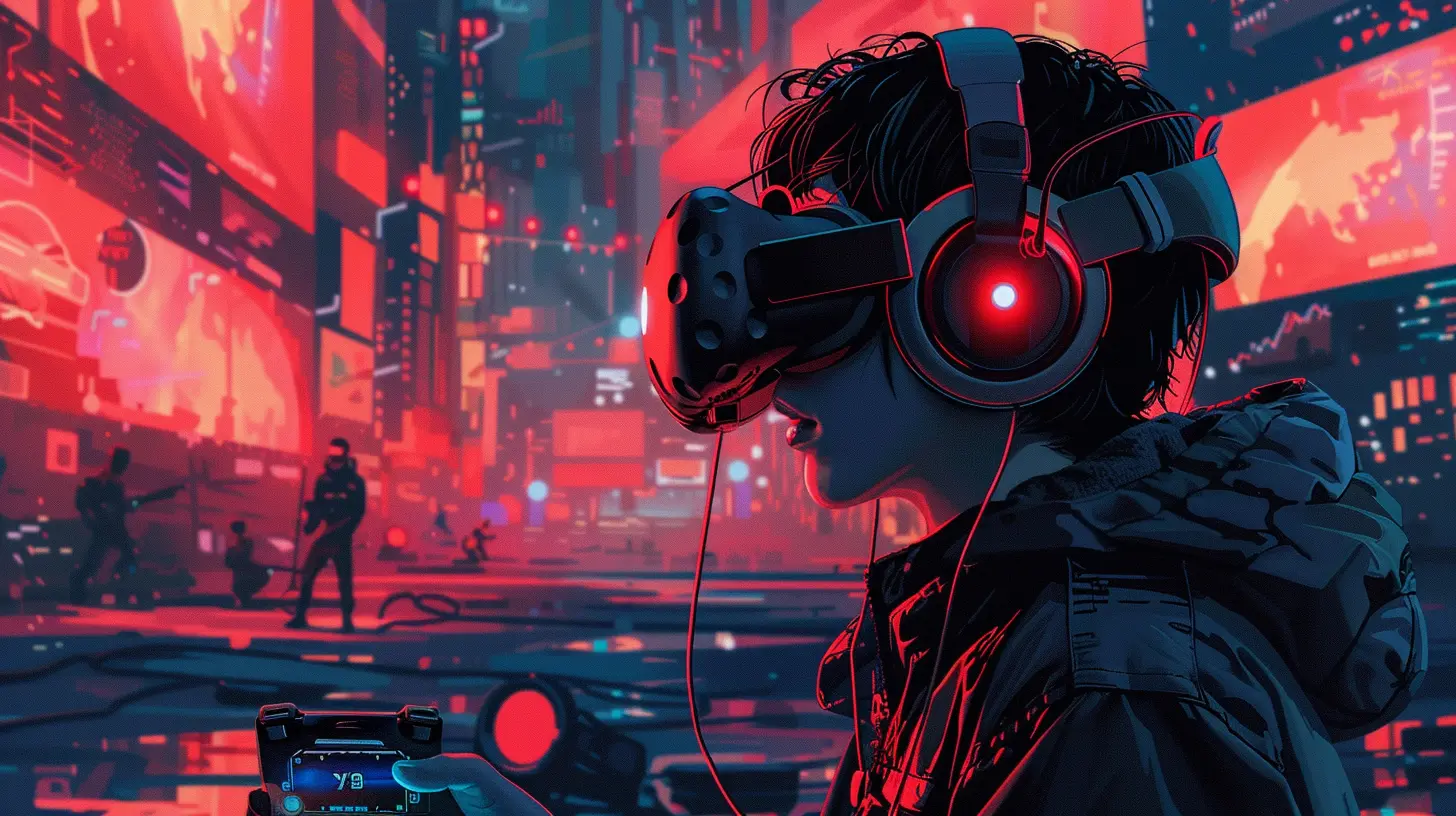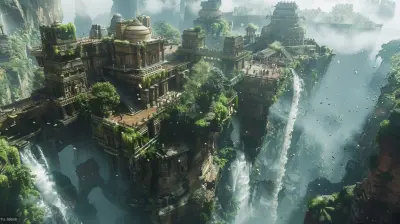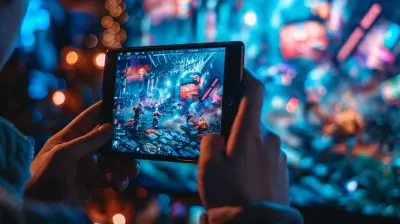How Trends in Game Awards Reflect the Industry’s Growth
8 April 2025
Video games have evolved into more than just a pastime; they've become an art form, a cultural phenomenon, and, for many, a way of life. As the gaming industry has grown, so too have the ways we celebrate its achievements. One of the most significant indicators of this growth? Game awards. These events go beyond just fancy trophies and acceptance speeches—they’re a mirror that reflects the industry’s evolution.
So, let’s grab our virtual controllers and dive deep into how trends in game awards reveal the journey and transformation of the gaming industry. 
A Quick Look Back: The Humble Beginnings
Let’s rewind to the early days of game awards. Back in the ‘80s and ‘90s, gaming wasn’t the global cultural force it is today. Most awards were niche events—think magazine polls or small gatherings for developers. Sure, they were exciting for the community, but they didn’t have the glitz and glamor we now associate with modern game awards.Fast forward to today, and it’s like comparing an 8-bit pixelated sprite to a jaw-dropping 4K render. With events like The Game Awards, industry accolades are now lavish productions that rival Hollywood's biggest nights. But this transformation isn’t just about aesthetics; it’s about how the industry has grown and diversified over time. 
Changing Categories: A Sign of Broader Horizons
If there’s one place where the growth of the gaming industry shines, it’s in the awards categories. The titles and genres recognized now are a far cry from just "Best Game" or "Best Graphics" of the past.Diversity of Genres
Modern game awards showcase a smorgasbord of genres and styles. From gritty action games to heartwarming indie gems, every corner of the gaming spectrum shines. “Best Indie Game,” “Best Mobile Game,” and even “Best Ongoing Game” are common categories. This variety tells us something important: gaming no longer fits into a single box. It’s not just about shooting bad guys or solving puzzles anymore. Developers are crafting stories, innovations, and experiences that cater to every taste.Inclusivity in Gaming
Another huge trend? The rise of categories celebrating representation and accessibility. Awards like “Games for Impact” highlight titles that tackle real-world issues, while recognition for accessibility innovations is changing the narrative around who gets to enjoy gaming. This isn’t just heartwarming—it’s a powerful reflection of how the industry is making strides to be more inclusive and welcoming.
The Rise of Indies in the Spotlight
One of the most heartening trends in game awards is the growing recognition of indie developers. A few years back, big studios dominated the scene. But now? Indie games are regularly stealing the show.Think back to games like Hades, Celeste, or It Takes Two. These titles didn’t just win hearts; they won big awards, too. Why? Because they offered something fresh, personal, and innovative. It’s like the gaming industry finally realized that creativity isn’t exclusive to massive teams with billion-dollar budgets.
For indie developers, this shift isn’t just a chance for recognition—it’s a game-changer (pun absolutely intended). Awards give them a platform, an audience, and validation. And as gaming fans, we all benefit from this diversity of experiences. 
Storytelling Takes Center Stage
If you’ve been paying attention to game awards over the past few years, you’ve probably noticed one big trend: storytelling is king. Games with rich narratives, complex characters, and emotional depth are sweeping up awards left and right.Titles like The Last of Us Part II, God of War (2018), or Disco Elysium reflect this shift. These aren’t just games—they’re interactive masterpieces that rival the storytelling found in movies or novels.
But why is this happening now? Well, the rise of technology has a lot to do with it. Developers can now create hyper-realistic environments, subtle facial animations, and immersive worlds. Combine that with top-tier voice acting and writing, and you’ve got stories that hit you right in the feels.
Esports and Streaming: A Seat at the Table
Another massive trend in game awards is the growing presence of esports and streaming. Competitive gaming has exploded over the past decade, and awards are finally catching up. Categories like “Best Esports Game” or “Best Esports Player” highlight this new frontier.But it’s not just esports athletes getting recognition—streamers and content creators have made their way onto the stage too. With awards dedicated to “Content Creator of the Year,” gaming awards now embrace their broader ecosystem. This inclusion reflects just how interconnected gaming, culture, and online communities have become.
Spectacle and Engagement: A Show for the Fans
Let’s face it: the modern gaming awards ceremony is as much about the fans as it is about the developers. The pomp, the trailers, the surprise announcements—it all adds up to an unmissable event.Years ago, awards shows were, dare I say, a little boring. But today’s events? They’re like gaming Super Bowls. The Game Awards, in particular, has taken this to the next level with live performances, celebrity presenters, and exclusive reveals. This isn’t just a celebration of past achievements; it’s a hype machine for the future of gaming.
But there’s a deeper meaning here—it’s a sign of how gaming has become a mainstream entertainment powerhouse. These shows aren’t just for hardcore fans; they attract millions of viewers worldwide. That speaks volumes about the industry’s growth.
Audience Involvement: The Power of Player Votes
Another trend worth talking about is how game awards embrace audience participation. Many modern awards now allow fans to weigh in, from public voting categories to real-time polls.This shift says a lot about the gaming community. Players are no longer passive consumers—they’re active participants. They don’t just play games; they shape the conversation around them. By letting players have a say, awards shows are embracing the heart and soul of gaming: the community.
Technology and Innovation
Let’s take a minute to appreciate how technology drives the trends in game awards. Every year, we see new categories emerge that reflect cutting-edge innovation. Whether it’s advancements in AI, virtual reality, or accessibility tech, these innovations aren’t just making games better—they’re expanding what games can be.When awards recognize things like “Best VR/AR Game” or give shoutouts to groundbreaking features, it’s a signal that the industry is constantly pushing boundaries. And honestly, that’s what makes gaming so exciting.
The Bigger Picture: Why These Trends Matter
Okay, so we’ve talked about categories, storytelling, technology, and all that good stuff. But what does it all mean? Well, these trends show us that the gaming industry isn’t just growing—it’s maturing.It’s becoming more inclusive, more creative, and more diverse. It’s tackling big ideas and telling stories that resonate. And it’s reaching out to audiences in ways we’ve never seen before. Game awards are a reflection of all of this, and they give us a glimpse of where the industry is headed.
Wrapping It Up
At the end of the day, game awards are more than just shiny statues and heartfelt thank-you speeches. They’re a testament to how far the gaming industry has come. The trends we see in these awards—whether it’s the rise of indie games, the celebration of accessibility, or the emphasis on storytelling—are proof that gaming isn’t just growing in size but in depth and impact.So, the next time you tune in to a game awards show, don’t just focus on who wins or loses. Look at the bigger picture. These events are a reflection of the creativity, passion, and innovation that make gaming so special. And honestly, isn’t that worth celebrating?
all images in this post were generated using AI tools
Category:
Game AwardsAuthor:

Lana Johnson
Discussion
rate this article
4 comments
Halle McGlynn
Game awards: where pixels meet prestige! As trends evolve, so does our ability to celebrate virtual dragons and pixelated heroes. Here’s to growth—may our trophies be as shiny as our graphics!
April 15, 2025 at 3:41 PM

Lana Johnson
Thank you for your insightful comment! It's true that as the gaming industry evolves, so do our methods of recognizing its artistry and innovation. Here's to celebrating every pixel of progress!
Valerie McLanahan
Exciting to see how game awards highlight creativity and innovation—truly a testament to the industry's evolution!
April 12, 2025 at 5:05 PM

Lana Johnson
Thank you! It’s inspiring to witness how game awards celebrate and drive creativity in our ever-evolving industry.
Nora Coffey
Game awards: where pixelated dreams get shiny trophies and awkward acceptance speeches!
April 10, 2025 at 4:05 PM

Lana Johnson
Absolutely! Game awards capture the evolution of the industry, celebrating creativity and innovation, while showcasing the personalities behind the pixels.
Makayla McClain
This article brilliantly highlights how game awards not only celebrate creativity but also mirror industry shifts, emphasizing the importance of diversity and innovation in an ever-evolving gaming landscape.
April 10, 2025 at 3:49 AM

Lana Johnson
Thank you! I'm glad you found the article insightful in showcasing the connection between game awards and industry evolution.



